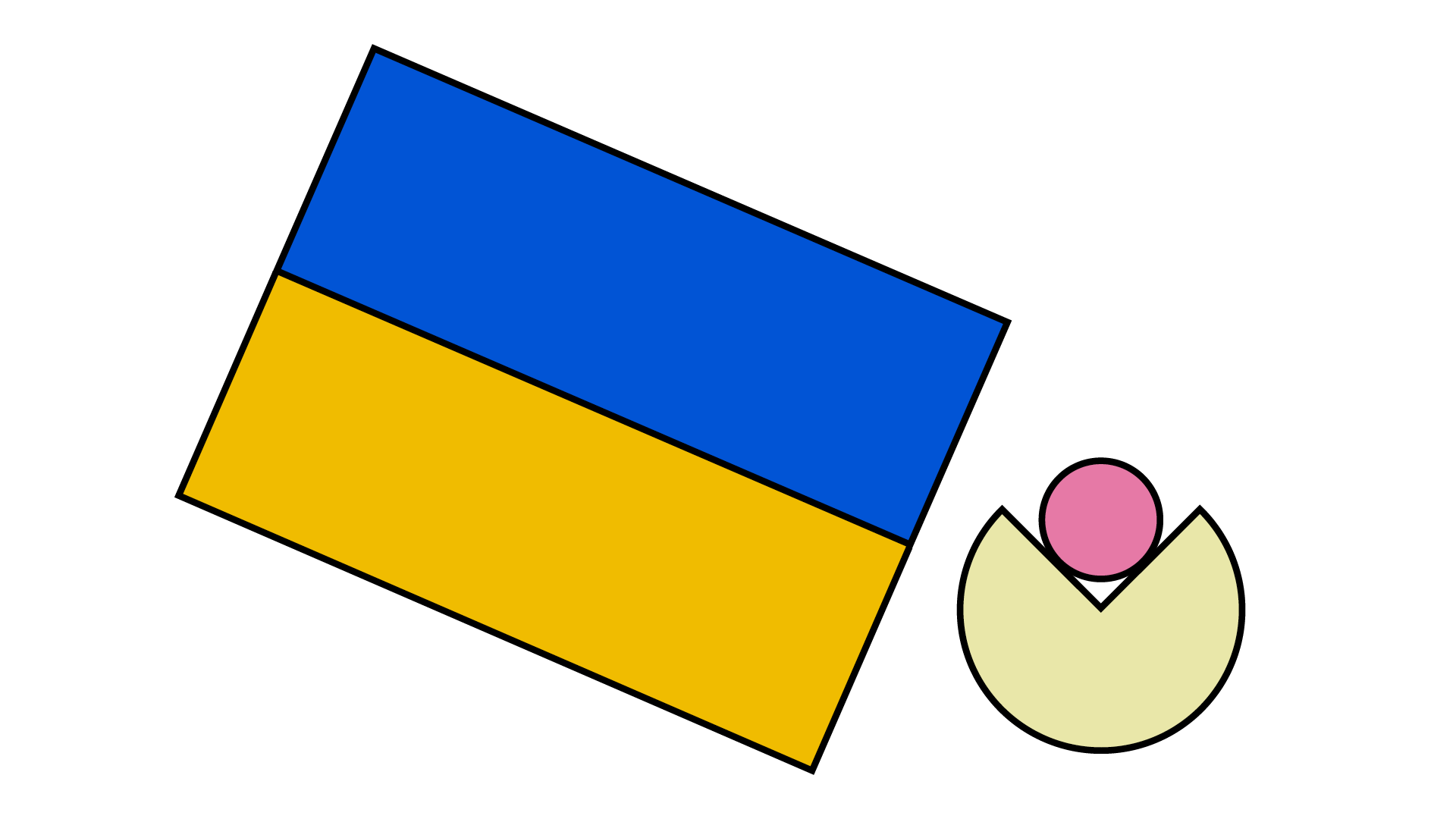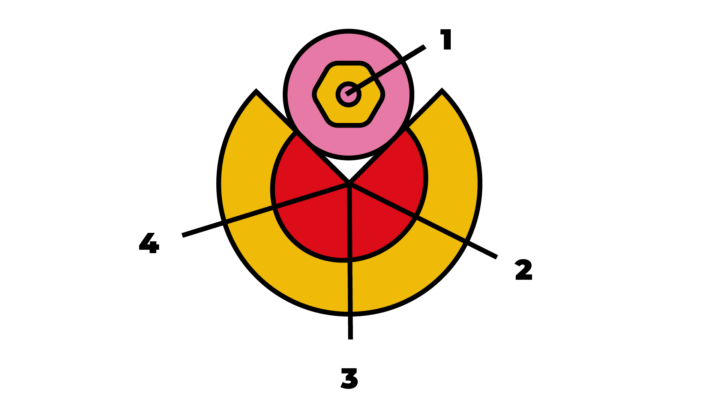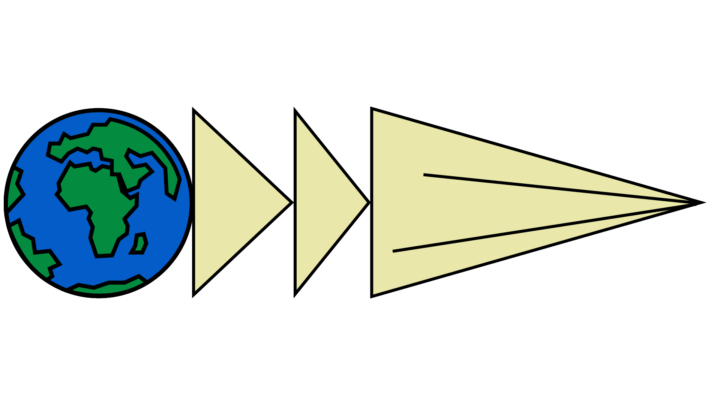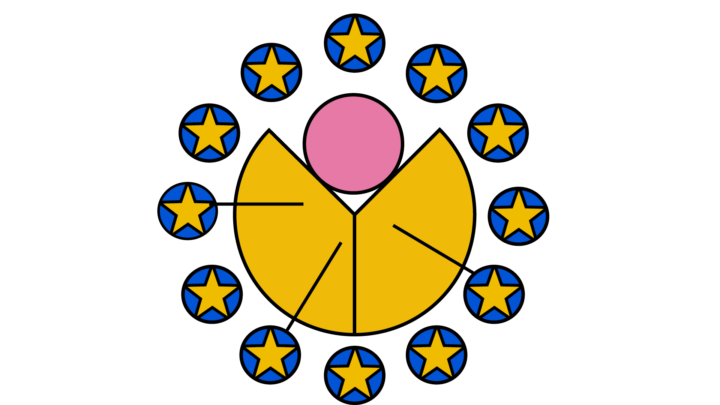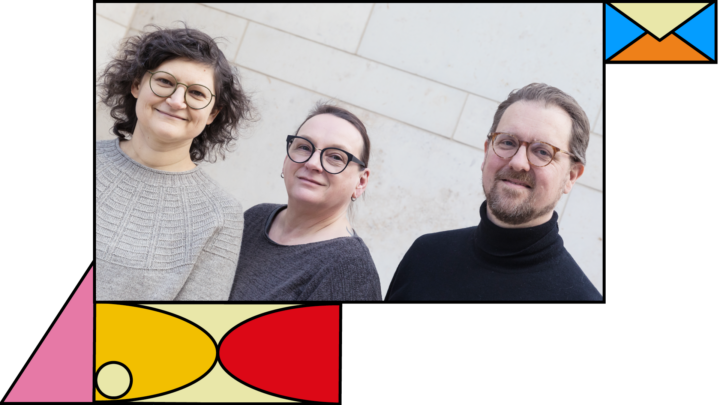Oksana Rodikova, a staff member of Wikimedia Ukraine (WMUA), is one of the millions of people who had to leave their homeland because of the Russian war of aggression. Thanks to the good international connections between the chapters, she was able to join Wikimedia Deutschland as a staff member. In 2022, she joined the Communications and Events team and reported in a blog series about her work at WMUA and her commitment to Free Knowledge.
Oksana Rodikova, a student at the Faculty of History and a Wikimedia Ukraine staff member, lived in Kyiv near Zhuliany Airport, which was destroyed on the very first day of the war, on February 24, 2022. Soon there was a curfew in the city, and Russian soldiers advanced not far from her place of residence to the Obolon district. Detonations and sirens were constantly audible. Very soon, Oksana decided to leave Ukraine.
“I wrote an email to Wikimedia Deutschland asking if I could work there. I immediately received the reply that I was welcome and that a staff member could pick me up in Berlin. I arrived at 3 a.m. and was met by Åsa Månsson, our Head of the Strategy and Governance team.” This is how Oksana Rodikova describes her journey, which led via Poland to Berlin – something that was made possible not least thanks to WMDE’s good international connections. Her experiences are recorded in the first part of the Ukraine blog that she managed as a new member of the team in 2022.
Outreach to volunteers
In Berlin, Oksana joined the Communications and Events team and continuously improved her language skills.
At Wikimedia Ukraine – a comparatively small chapter with ten permanent employees – she worked as the office manager, coordinating organizational processes, designing and sending merchandise for association members – including a magnet with the winning photos of the “Wiki Loves Monuments” contest. She also organized meetings with Ukrainian students in various cities around the country to introduce them to the Wikiverse and recruit them as volunteers. Most recently, she also co-organized a Wikimedia conference in Ukraine, which never happened due to the war.
Where “Wiki Loves Earth” began
In a double edition of the Ukraine blog, Oksana highlighted the history and the present situation of WMUA and the structures and peculiarities of the organization. For example, there is one dedicated team for “Wiki Loves Earth (WLE)”, the international photo contest featuring natural monuments and conservation areas in Ukraine that was first organized in 2013 – initially as an exclusively Ukrainian project.
This edition also focused on how the work of volunteers and members can still be sustained and supported under the conditions of war. Among other things, this generated the “Wikipedia: War Portal”, where those in need of help could network with potential helpers. “We have also received generous support from chapters in other countries,” states Anton Protsiuk, WMUA’s Programs Coordinator, in an interview with Oksana. He also describes what he sees as the most important thing for the community: “To give people a sense of belonging to a wider community.”

